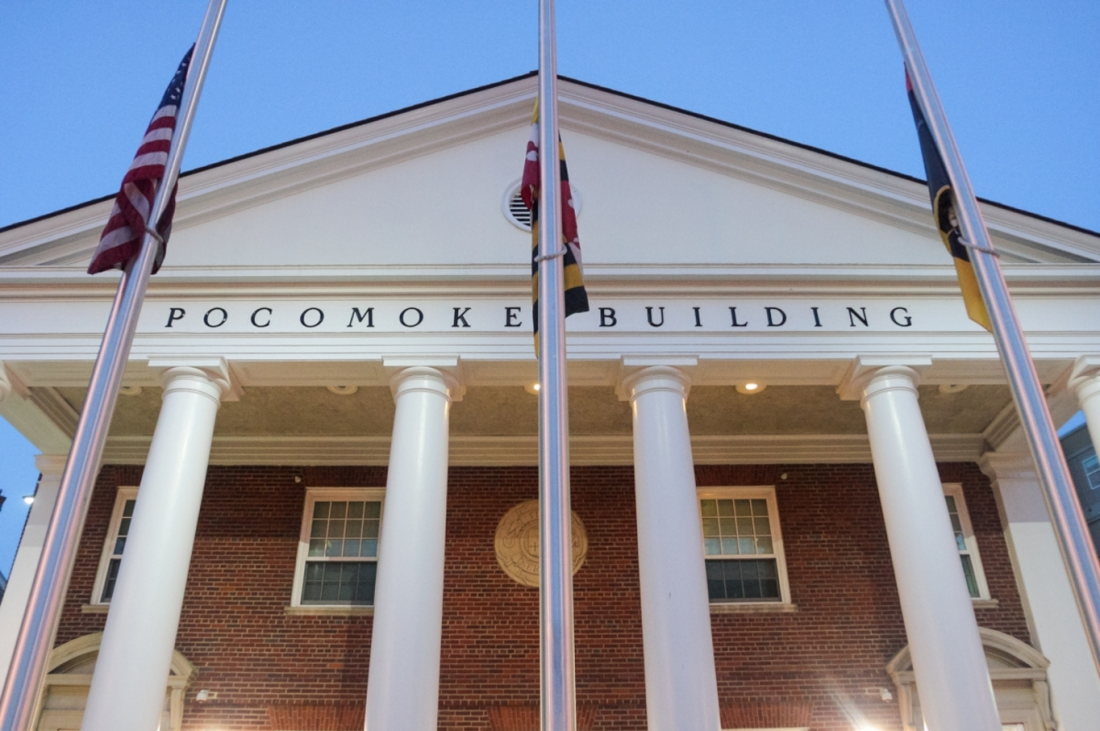University of Maryland Police are working with the Office of Student Conduct and a College Park bar to crack down on the use of fake IDs.
This partnership was formed incidentally, said David Lloyd, University Police’s chief of staff. While speaking to University Police about an unrelated incident in mid-August, an employee at a College Park bar voluntarily gave police a 4-inch stack of fake IDs, he said.
“We weren’t sure what to do with [the IDs] at first,” Lloyd said. “Then we decided we’d pass that information off to the Office of Student Conduct.”
University Police gave the IDs to the Office of Student Conduct on Sept. 13.
There were 57 IDs in total — 14 of which were deemed valid and returned to their respective states — said Mathew Shepard, an Office of Student Conduct coordinator. Twenty-four of the IDs belonged to current students.
“It’s not unusual for us to receive reports of fake identification from UMPD,” said Office of Student Conduct Director Andrea Goodwin. “But this is the first time in recent years we’ve had so many at once. It’s unusual for us to get a stack.”
Of the 24 current students involved, first-time offenders — if they accept responsibility for the fake ID — will receive a written warning and an educational sanction involving a reflection paper, Goodwin said.
These students will also learn about the consequences of having a fake ID and the dangers of underage drinking, Goodwin added. The Office of Student Conduct sent notices to all current students involved — even if they are now 21 or older.
If a student opts not to take responsibility, they could face a disciplinary conference with an administrator or a judicial board hearing, Goodwin said. The board will then decide on an appropriate sanction. Students on probation or with previous offenses will face additional penalties.
“Mostly we’re just having an educational conversation with students, helping them understand that possessing a fake ID could lead to much more serious consequences criminally,” Goodwin said.
Possession of a fake ID could potentially lead to a traffic citation and up to 12 points on a student’s driver’s license, University Police spokeswoman Sgt. Rosanne Hoaas said. An officer could also impose a fine of up to $500.
An officer may instead choose to refer the student to the Office of Student Conduct, or combine this option with one of the other punishments, she added.
“This might be another way to get people talking about and learning about high-risk situations for their own safety,” Lloyd said. “This is not something where the police department is writing tickets or arresting anybody or has any intention of doing that.”
Though this incident involved fake IDs from just one bar, University Police may look to pursue similar action with other bars in the area, Lloyd said. The department may also involve area liquor stores and restaurants that could potentially serve alcohol to minors.
“We could’ve gone the enforcement route, but we chose not to,” Lloyd said. “[We’re] trying to save people from getting into trouble — real trouble — or injuring themselves or worse.”



